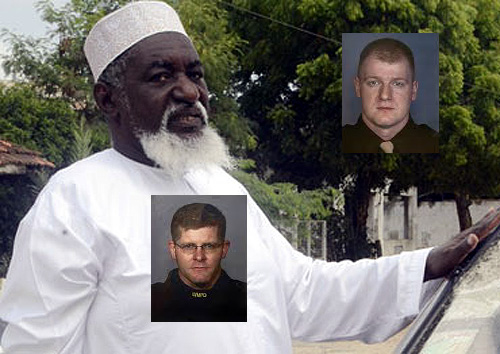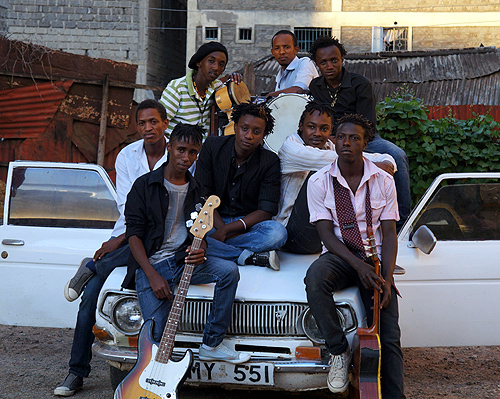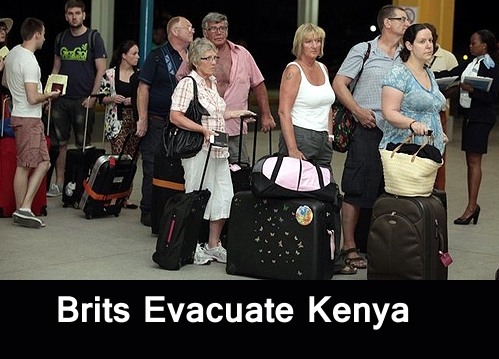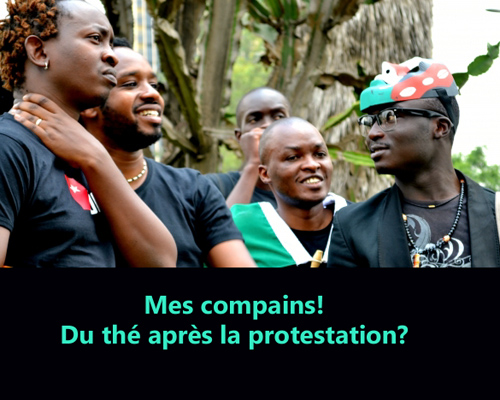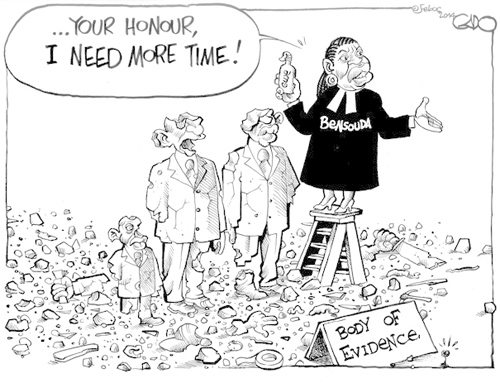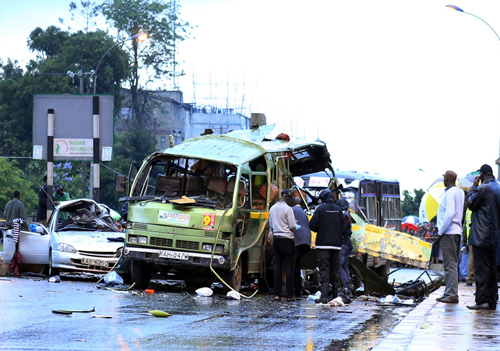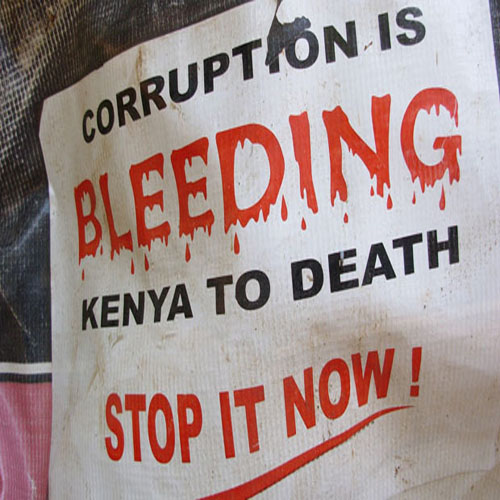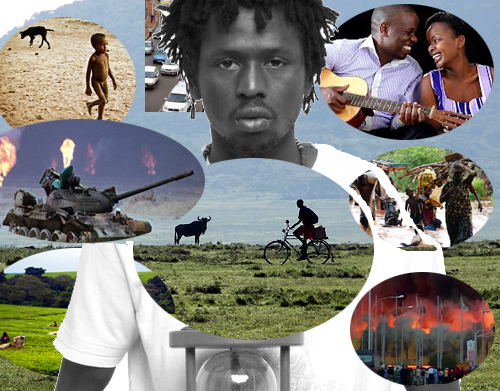
What every foreigner remembers is the
Westgate Mall attack. But what dominates every Kenyan’s memory of 2013 is the
March 4 election. In that divide is an universe of potential and catastrophe.
And such is all of Africa to an outsider: Youthful, idealistic, spectacular, exciting, unhealthy, poor and dangerous.
This is my Number 1 story for 2013: Kenya is Africa.
Kenya has one of the largest populations of poor people in the world, even though its GDP ranking puts it in the top 50% of all countries, singularly distinguishing it from many other African countries.
Income disparity explains this. According to the Heifer Project, the top ten percent of Kenyan households control 40% of the country’s wealth. (In contrast, roughly the same percentage of American wealth is controlled by only 1 percent of Americans.)
But what’s particularly notable in Kenya is that the spread between that 10% and 90% is much greater than in America. The lowest income among Kenya’s growing middle class (the ten percent) averages 6-7 times more than the highest income among the bottom 90%.
This puts income disparity in a brand new light. Unlike in America and the other capitalist champions that have done everything in their history to make Kenya in their image, a rich person is geometrically better off in Kenya than a poor person.
It’s the reason Nairobi is cluttered with Mercedes, Gucci outlets and increasing fashion shows; while rural Kenya still suffers from the highest infant mortality on earth.
And that 10% middle class has begun to flower, and therein lies all the potential seen by outsiders. In films, business, literature and music, and global peace-making, Kenyans are growing more and more notable even as their most neglected people are getting sicker and poorer.
Kenya’s actual capitalist ranking is very low save one critical exceptional component. The World Bank ranks countries’ capitalism as its “Doing Business Metric,” a very thorough dissection of all the things needed to start, operate and succeed in a private enterprise.
Kenya is ranked 129 of 189 countries examined. It would be much lower if it didn’t achieve the rank of 13th in the world for the ease of getting credit. That high ranking comes precisely because of the enormous investment world leaders through their own state and global institutions are making and have always made in Kenya.
And that’s because the country is so strategic in world affairs. It carries the guns to Somalia, the diplomacy to The Sudan and at least the veneer of human rights to its much more despicable neighbors.
So while few investors would normally choose such a troubled society as Kenya, the allure of incredibly easy credit keeps them coming. Capitalist champions like the U.S. routinely sugar-coat the difficulties of transparency, bribing and climate change by comparing Kenya to the rest of the East African region which it dominates.
Whether “Konzo of Kajiado” will ever come to fruition remains to be seen, but investors have secured the capital for large residential and commercial developments that are difficult to organize even in the continent’s behemoth economy, South Africa.
So it’s absolutely undeniable that capitalists believe deeply in Kenya and possibly as a model for long-term business in all of Africa. They may be the greater risk takers in their club, but they may also end up the biggest winners.
I believe poverty is institutionalized in and essential to the current world economic system, even while those who benefit most are often the most vocal crusaders against poverty. And Kenya is the test tube they all use.
And so ironically fueled mostly by Chinese investment and massively topped up by western aid, Kenya receives more attention per capita than any other non-warring country in the world.
Why?
The first reason is because … it always has. The country is now and always has been strategic, and often divided radically opposed forces. Since the earliest precolonial days its excellent harbors provided trade to all of interior Africa instantly bringing face to face the Arab slave and ivory traders with Christian missionaries.
In colonial days it buffered Britain from Germany. In post colonial days it buffered the western powers from China and Russia.
In modern times Kenyan dictators battled Kenyan Nobel laureates for the country’s psyche. And the battles were not all cerebral. More than 1300 people were killed and a million displaced in the violence that followed the flawed, contentious and finally negotiated “democratic” election of 2007.
And today it carries that schizophrenia into economics and politics. The country’s constitution is magnificent, championing human rights in ways U.S. activists can only pine over. Yet its actual record in implementing those magnificent principles is abysmal, and Human Rights Watch is increasingly condemning actual social practices regarding the media, police and most importantly, the “ICC.”
There is no other abbreviation so well known in Kenya as “ICC” which stands for the International Criminal Court. Kenya’s president and vice-president are on trial for crimes against humanity in the ICC at The Hague. Yes, that’s what I said. And to add insult to injury, consider that both men were indicted by the ICC before they were elected last March.
Kenya’s schizophrenia is genetic. It’s known as tribalism and more simply, racism. Despite a youthful population in which more than 70% of Kenyans were born a decade after a “democratic independence,” the country remains incredibly split along tribal lines.
It was tribalism that brought the despot arab Moi to power for a generation. It was tribalism that brought the democratic Kikuyu presidents to power thereafter. Whether by force or ostensible free will, Kenya is ruled by tribal power.
And that tribalism seeps down first to business, then to social institutions and the media, and finally into the schools. Efforts to end tribalism take a far back seat to efforts simply to minimize its more egregious effects.
And so Kenya today shows exceptional promise, creates a “western veneer” of respecting human rights and a insatiable desire for capitalism, but seems unable to emerge from the ruts of poverty and tribalism that have plagued it forever.
Is this what democracy and capitalism is all about? Or is it what foments terrorism?
So we come full circle to the Westgate Mall attack. To the 1998 embassy bombings. To the Nairobi airport incineration. To an average of three horrible deadly terrorist attacks every month.
As I said when describing the Westgate Mall attack for the first time, Kenya doesn’t deserve this. In all its duplicities, masquerades and outright lying, Kenya has nevertheless managed to be … until the embassy bombings … one of the most peaceful countries in the world.
It is no longer. It is one of the least peaceful countries in Africa. “Peace” as defined for example in Rwanda is not something to lust for, so autocratic rule and brutal suppression of human rights is not worth peace. So some would argue that Kenya’s lack of peace is the excitement and hope for resolution of our new world’s competing ideas.
Perhaps so, and that’s noble to be sure. But for the wonderful Kenya I remember as my home for a short time long ago, it’s as different a place as Gotham is to an impoverished Kansas farm town.
I wouldn’t want to live in either. But what, exactly, is in between?

